Assessment for Impact: Formative and Summative Approaches is an advanced, interactive course designed to help educators deepen their understanding of assessment and transform their assessment practices to better support student learning and achievement. This course goes beyond theory to encourage active reflection, strategic planning, and the development of practical skills. Through a combination of short, focused video lessons and rich, reflective activities, you will explore the nuances of formative and summative assessment and how to use them as tools for meaningful student growth.
In this course, educators will learn to:
The course aims to transform your assessment practices, moving beyond mere grading to an approach that prioritises student development and achievement. By balancing formative and summative strategies, educators will be equipped to create assessments that are not only evaluative but also instructional, ensuring that every assessment contributes meaningfully to the learning journal.
Please note: While the video content is concise and focused, the course includes a series of reflective activities designed to engage you in thoughtful planning and reflection. The total time commitment for this course may extend beyond the video lengths, as you engage with the materials and reflect on how to apply them in your own practice. Be prepared for a deep, interactive learning experience that will encourage you to grow as an educator and improve your assessment strategies.

$39
Lessons: 13
Lessons: 13
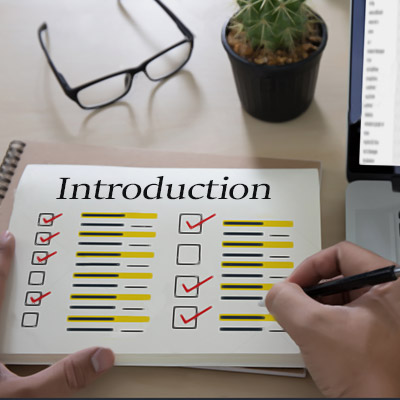
Understanding Assessment Types in Education and their impacts.
Duration
00:02:12This video introduces foundational concepts in educational assessment, focusing on formative and summative assessments. It explains how formative assessments act as ongoing checkpoints during learning, helping adjust teaching strategies to support student progress. Summative assessments, on the other hand, serve as final evaluations of student achievement at the end of a learning period. Through engaging examples, it encourages educators to reflect on their current assessment practices, sparking insights into adapting methods for improved student outcomes and engagement.
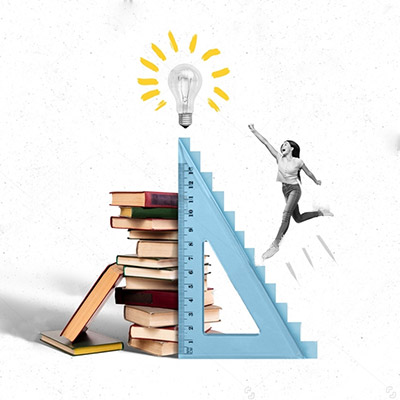
Explore the role of assessments in supporting student growth.
Duration
00:03:08This video dives into the essential role of assessments in enhancing student learning. It covers both formative and summative assessments, showing how they provide insights into students' knowledge, skills, and progress. By integrating assessments as a core part of teaching, educators can tailor instruction to meet students' needs, track progress, and adjust strategies for better outcomes. Reflective practices and evidence-informed research are highlighted, empowering teachers to optimise assessment techniques for maximum impact on student achievement.
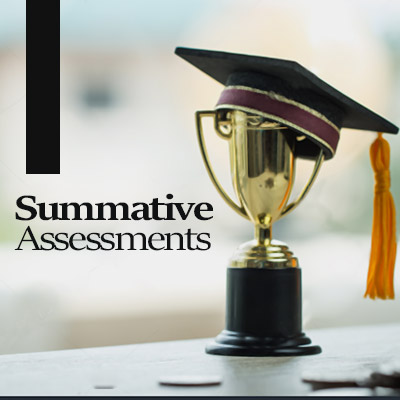
A guide to understanding and implementing summative assessments.
Duration
00:04:18This video dives into summative assessment methods, exploring how they evaluate student achievement and support future learning. You’ll gain insights into various types of summative assessments, like tests, projects, and presentations, and their role in tracking and ranking student progress. The session also emphasises the importance of valid, reliable assessments and effective feedback for enhanced learning. By the end, educators will have practical tools to create meaningful assessments and encourage student reflection through interactive survey activities.
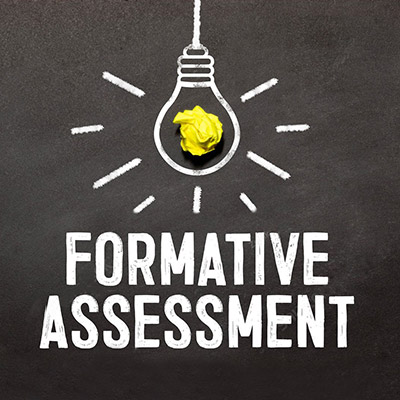
Explore essential techniques to enhance real-time student learning.
Duration
00:03:02This session delves into key formative assessment strategies that empower teachers to foster real-time learning improvements. It covers the types of formative assessments—on-the-fly, planned, and curriculum-embedded—and demonstrates how these can be used effectively in the classroom. Viewers will gain insights into providing immediate, actionable feedback, clarifying learning intentions, facilitating peer assessments, and encouraging students to take ownership of their learning journey, all aimed at creating an interactive and impactful learning environment.

Explore essential techniques to enhance real-time student learning.
Duration
00:02:31This session delves into key formative assessment strategies that empower teachers to foster real-time learning improvements. It covers the types of formative assessments—on-the-fly, planned, and curriculum-embedded—and demonstrates how these can be used effectively in the classroom. Viewers will gain insights into providing immediate, actionable feedback, clarifying learning intentions, facilitating peer assessments, and encouraging students to take ownership of their learning journey, all aimed at creating an interactive and impactful learning environment.

Learn techniques to engage students and understand their learning progress.
Duration
00:01:56This session explores the powerful tool of strategic questioning to gain insights into students' thought processes and learning styles. It covers specific strategies to foster open-ended, critical thinking through verbal questions, digital tools like Socrative, Padlet, and Plickers, and encourages collaborative classroom discussions. Teachers will also learn how to plan questions effectively, analyse responses, and refine their approach to create a more engaging and reflective learning environment, ultimately tailoring their teaching to better meet students' needs.

Learn effective digital and traditional tools for impactful assessment.
Duration
00:04:08This video explores various formative assessment tools that help teachers provide immediate feedback, track student progress, and enhance classroom engagement. It covers popular digital tools like Kahoot, Socrative, and Padlet, which make assessments more interactive and enjoyable. Additionally, traditional tools such as graphic organisers, mind maps, and checklists are highlighted for organising student thoughts, fostering collaboration, and building self-esteem. By integrating these tools, teachers can create a more supportive and effective learning environment.

Explore strategies to extend formative assessments' impact on student growth.
Duration
00:03:02In this session, we discover how to make formative assessments truly valuable for students. While apps can boost lesson engagement, their impact often fades quickly. We discuss ways to ensure that formative assessments go beyond immediate quizzes, focusing instead on reflection, self-assessment, and continuous improvement. Learn strategies like post-quiz polls, reflective discussions, and future-focused prompts to foster deeper learning and empower students to set and achieve meaningful learning goals.
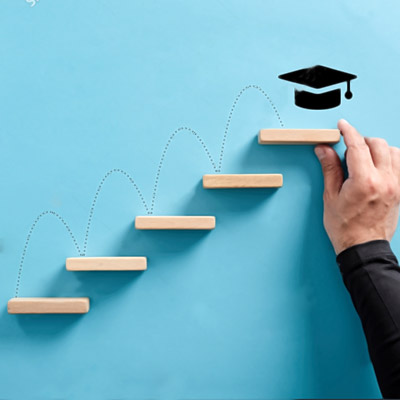
Techniques to track and improve student learning progress effectively.
Duration
00:03:49This session dives into practical formative assessment strategies that help teachers track student progress and provide impactful feedback. Learn how to collect and use evidence of student understanding through tools like clickers, digital charts, and self-assessment systems. Explore techniques for setting clear criteria, fostering peer assessment, and creating a supportive learning environment that encourages independent learning and growth. These insights will equip educators to adapt their teaching methods and better support students on their learning journey.

Learn essential strategies for giving constructive feedback to boost learning.
Duration
00:02:55In this video, we look into the importance of constructive feedback in supporting student growth. You’ll discover why feedback is a critical tool in the learning process and explore actionable strategies for delivering it effectively. By addressing key questions—where students are, where they need to go, and how to get there—you’ll learn to create a motivating and reflective learning environment.
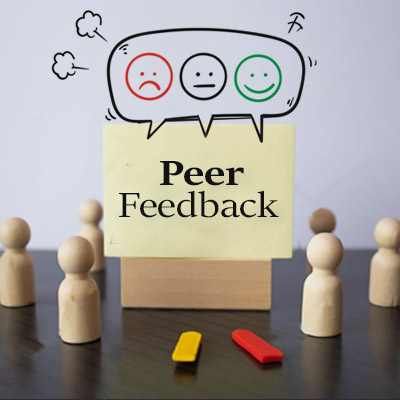
Explore effective peer feedback techniques to build a supportive classroom.
Duration
00:02:15This video highlights the impact of constructive peer feedback within a supportive classroom environment, where trust and mutual respect drive growth. Discover proven techniques like "Two Stars and a Wish," traffic light indicators, and warm vs. cool feedback to help students give and receive valuable insights. The video includes role-play exercises, promoting hands-on practice with these strategies, empowering students to enhance communication, critical thinking, and collaborative learning.
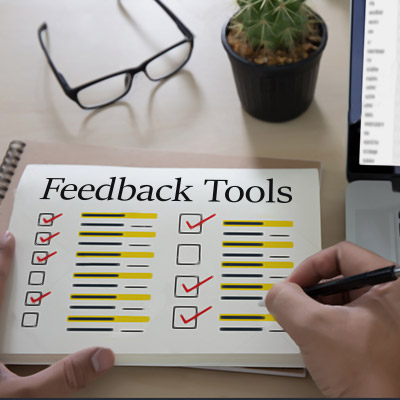
Learn key strategies and resources for student-directed self and peer feedback.
Duration
00:03:44In this video, we explore practical scaffolds and tools for fostering student-directed feedback. Discover strategies to help students give and receive constructive feedback, including sentence starters, checklists, and rubrics. Learn how to integrate feedback into instructional planning and promote a culture of continuous improvement. With a focus on active student participation, these methods enhance self-assessment and peer collaboration, driving meaningful growth in the classroom.

Integrating Assessment into Instructional Planning
Duration
00:04:15The concluding session focuses on integrating formative assessment and feedback into instructional planning, addressing challenges, and fostering continuous improvement within schools. It provides guiding questions, steps for implementation, and key components for developing an action plan to support teachers in improving their assessment practices. Key elements include identifying changes, supporting colleagues, and ensuring consistency in practice to enhance student learning outcomes.